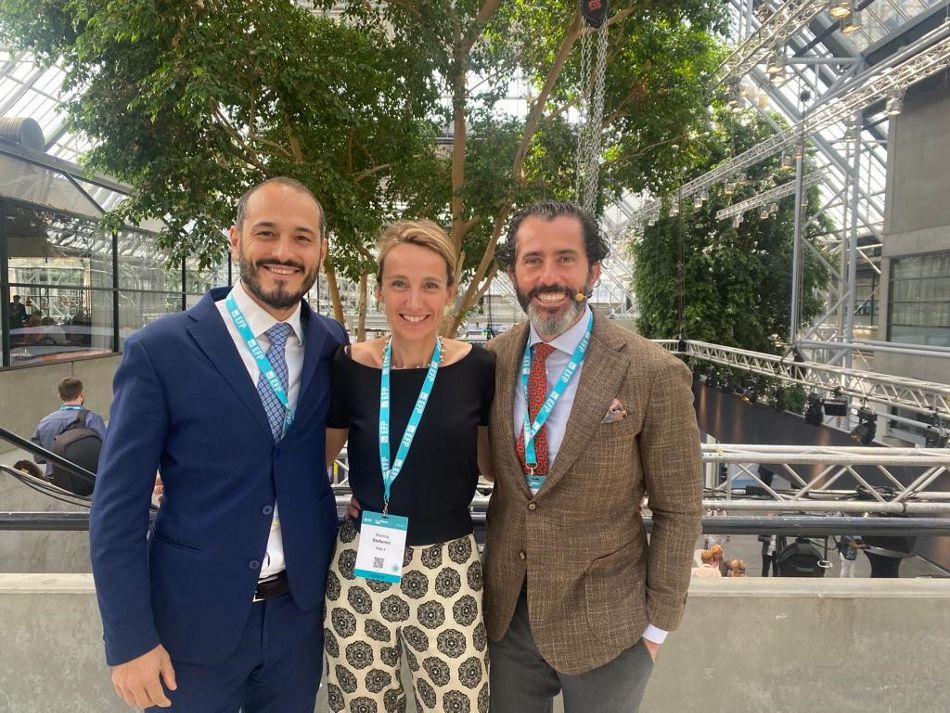
Prevention is more important now than ever and should be established as a mindset to maintain good oral and overall health. Over 50% of the global adult population suffers from periodontal disease, and clinical guidelines state that dental professionals must play a leading role in limiting their patients’ periodontal and peri-implant issues. In the clinic, this includes surgical and non-surgical treatments and the use of biomaterials to limit the progression of the disease and promote the regeneration of lost tissue. Beyond the chair, dental professionals must also educate and motivate patients to perform effective self-care and provide personalized oral hygiene advice on the appropriate use of at-home products.
The Oral-B–Straumann jointly sponsored scientific session at EuroPerio10, moderated by Dr Martina Stefanini, senior assistant professor at the University of Bologna in Italy, explored these topics in detail. All speakers emphasized the need for a holistic approach that combines evidence-based chairside periodontal and peri-implant treatments with educating patients to perform effective oral hygiene at home.
Dr Giorgio Pagni from the University of Milan dental school discussed novel strategies for preventing peri-implant biological complications. Reflecting on the high prevalence of mucositis and peri-implantitis, he noted: “In the next couple of years, we will be not only periodontists but peri-implantologists.” Dental plaque as a microbial biofilm is a significant factor for peri-implantitis, which is why dental professionals must focus on limiting disease and educate patients on dental home care beyond the regenerative treatments performed in the clinics. “We can do a lot at the dental office, but we can’t be at the patient’s home,” he noted.
“In the next couple of years, we will be not only periodontists but peri-implantologists”
Dr Giorgio Pagni, University of Milan
Meanwhile, Prof. Filippo Graziani from the University of Pisa offered novel insights into the management of periodontal disease. By treating periodontitis, which has been associated with a staggering 57 systemic diseases, he believes patients’ overall well-being can also be improved: “By reducing the inflammation, we also improve the patient’s quality of life,” he stated. Prof. Graziani also commented on the importance of starting regenerative therapies, where possible already at the non-surgical stage of the periodontal treatment workflow. This can benefit both the clinician and the patient. For example, it has been shown that the application of enamel matrix derivative may triple the chances of resolving pockets and avoiding surgery.
“By reducing the inflammation, we also improve the patient’s quality of life.”
Prof Filippo Graziani, University of Pisa
The session closed with a discussion on the importance of effective home care to maintain successful treatment outcomes achieved at the chairside. In addition to recommending professional calculus removal, interdental cleaning and the motivation of patients to adopt healthy habits, both Dr Pagni and Prof. Graziani recommended using electric toothbrushes, such as those having oscillating rotating technology, for improved plaque reduction and effective management of gingivitis. Dr Pagni believes that a dental patient should aim to become “the Cristiano Ronaldo of toothbrushing”, whereas Dr Stefanini is certain that “the relationship with the periodontal patient is for a lifetime since the supportive periodontal therapy should last forever”.
The EuroPerio10-sponsored scientific session, attended by over 150 dental professionals, is the first in a series of scientific exchange activities to be rolled out by Oral-B and Straumann across Europe and North America. Another symposium is scheduled to be held at the American Academy of Periodontology Annual Meeting, which will take place between 27 and 30 October in Phoenix Arizona in the US.
If you want to see the Straumann – Oral-B sponsored session at Europerio, please register for free here:
Limiting periodontal and peri-implant diseases during and beyond the Pandemic: from the chair to self-care - Webinar - Straumann Campus Live
About Straumann® Biomaterials
Our unique biologics, complete GBR portfolio, and innovative custom solutions are designed to help our customers master the challenges they might face in their daily practice. If you like to learn more: click here.

Want to stay up to date?
youTooth.com is THE PLACE TO BE IN DENTISTRY – subscribe now and receive our monthly newsletter on top hot topics from the world of modern dentistry.